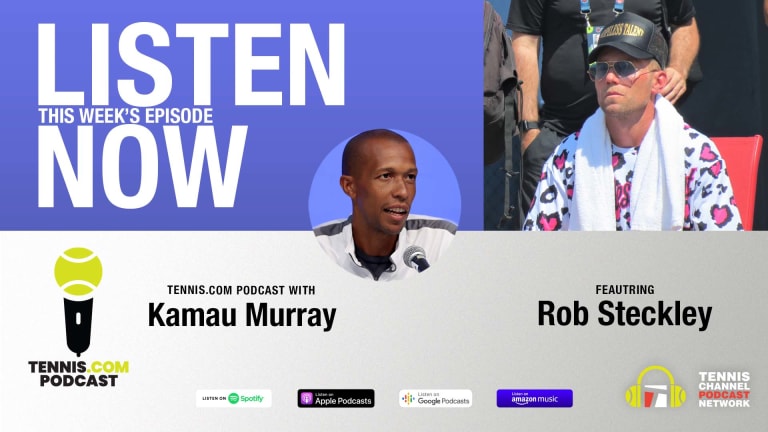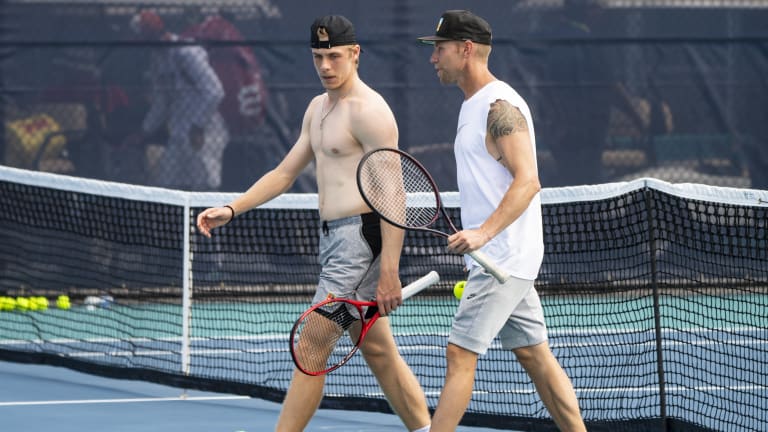There’s just nothing like finding your calling. No matter the industry, it is an invigorating feeling to discover exactly what you have been put on Earth to do. For Rob Steckley, that calling is, undoubtedly, coaching others.
Since the end of his competitive playing career, he has thrown himself full force at developing and leading others in their tennis journeys. His passion remains relentless, even if the journey has been arduous on occasions. But the Toronto native has remained dedicated to the process of helping others improve. His appearance on the Tennis.com Podcast with Kamau Murray examines the highs and lows of his profession, and why there’s always room to grow in coaching.


